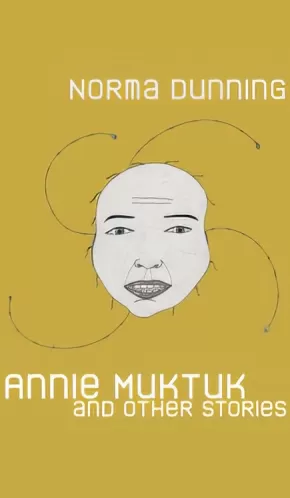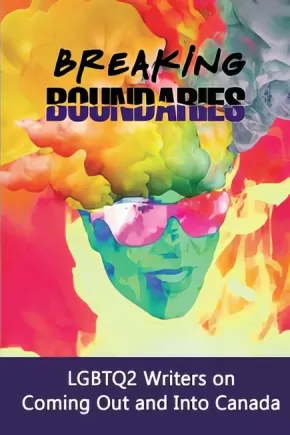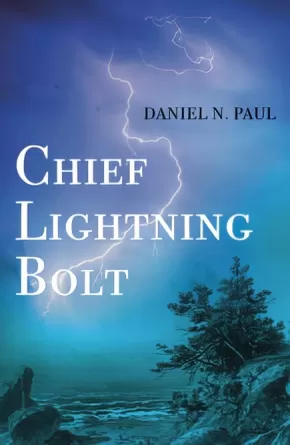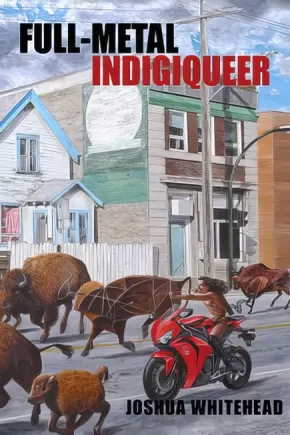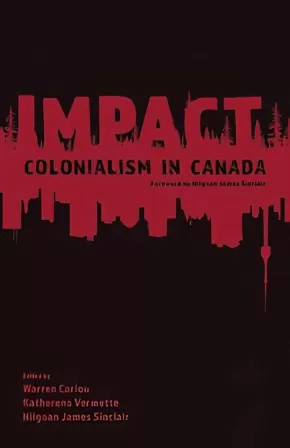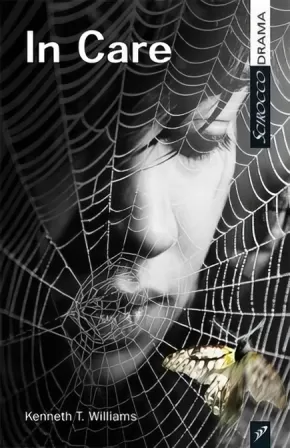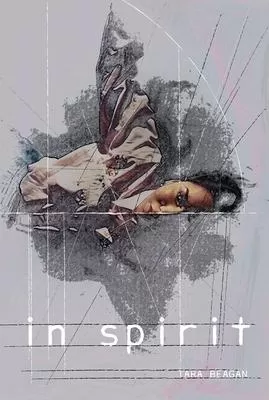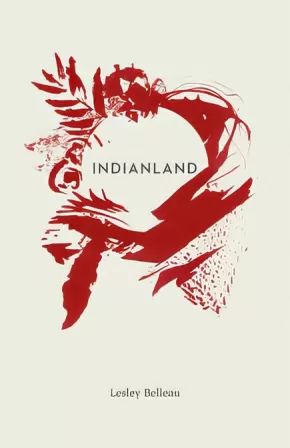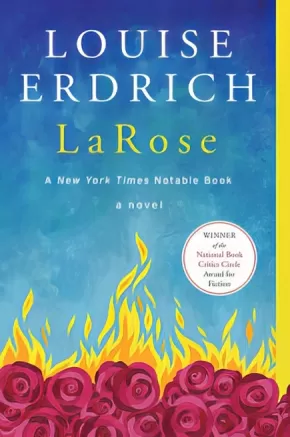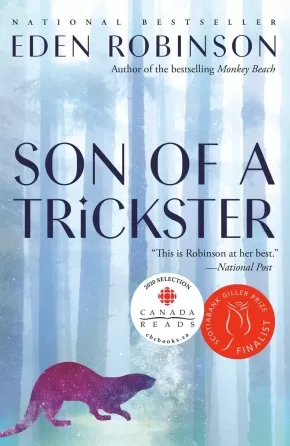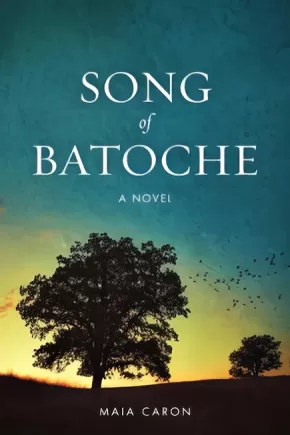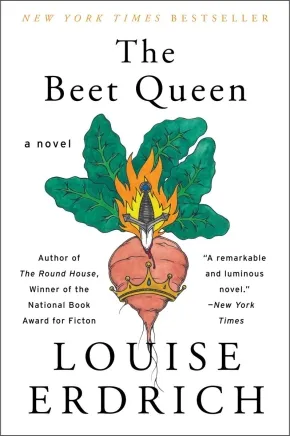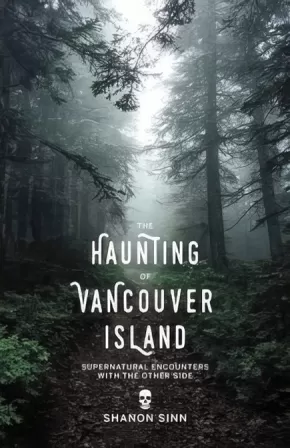
Fiction
436
-
450
of
568 Results;
Sort By
Go To
of 38
Annie Muktuk and Other Stories
$22.99
Format:
Paperback
Text Content Territories:
Indigenous Canadian; Inuit;
Grade Levels: University/College;
ISBN / Barcode: 9781772122978
Synopsis:
Synopsis:
I woke up with Moses Henry’s boot holding open my jaw and my right eye was looking into his gun barrel. I heard the slow words, “Take. It. Back.” I know one thing about Moses Henry; he means business when he means business. I took it back and for the last eight months I have not uttered Annie Mukluk’s name.
In strolls Annie Mukluk in all her mukiness glory. Tonight she has gone traditional. Her long black hair is wrapped in intu’dlit braids. Only my mom still does that. She’s got mukluks, real mukluks on and she’s wearing the old-style caribou parka. It must be something her grandma gave her. No one makes that anymore. She’s got the faint black eyeliner showing off those brown eyes and to top off her face she’s put pretend face tattooing on. We all know it’ll wash out tomorrow. — from "Annie Muktuk"
When Sedna feels the urge, she reaches out from the Land of the Dead to where Kakoot waits in hospital to depart from the Land of the Living. What ensues is a struggle for life and death and identity. In “Kakoot” and throughout this audacious collection of short stories, Norma Dunning makes the interplay between contemporary realities and experiences and Inuit cosmology seem deceptively easy. The stories are raucous and funny and resonate with raw honesty. Each eye-opening narrative twist in Annie Muktuk and Other Stories challenges readers’ perceptions of who Inuit people are.
Awards
- 2017-2018 Danuta Gleed Literary Award Winner
- 2018 INDIEFAB Book of the Year (Short Stories)
- 2018 Howard O'Hagan Award for Short Story
Reviews
"Dunning’s stories, nuanced and deeply felt, reach deep into the heart of what it means to be Inuit, into the sacred place where the songs of the north are still sung, visions are still seen, and the spirits still speak. From this place, it is possible to laugh at those who come to destroy. From this place, dignity is maintained and the connection to the turning of the seasons is unbroken. Together with grief for what has been lost, there is power and light in these stories." — Kristine Morris, Foreword Magazine, June 2017
"When I read the article, 'What inspired her was getting mad,' about the story behind Norma Dunning’s debut collection, Annie Mukluk and Other Stories, I was not surprised. Acts of justice and revenge factor throughout the book, propelling the stories so terrifically. Dunning wrote her stories in response to ethnographic representations of Inuit people that neglected to show them as actual people, and the result is a book that’s really extraordinary. Because her people are so real, people who laugh, and joke, and drink, and have sex (and they have a lot of sex)." — Kerry Clare, Pickle Me This, August 2017
"Although [Dunning] deals with serious contemporary realities for Inuit people, she manages to work in moments of humour that flesh out her characters, making them fully realized and complex.”— Matthew Stepanic, Where.ca, September 2017
"A successful short story takes us to unfamiliar places, and the 16 stories in this collection certainly fill that bill. It’s a journey deep into Inuit life, with tales of Inuk of all shapes, genders and ages. The title story is at turns funny, violent and cunning: Jimmy tries to convince best friend Moses to stay away from the glorious Annie Muktuk, an arnaluk (naughty woman, according to the glossary) who will cause him grief." — Sarah Murdoch, Toronto Star, November 2017
"This whole collection is fantastic, but the story with the bad trip is 'Husky', inspired by the life of trapper and HBC Factor "Husky" Harris whose visit to Winnipeg with his three Inuit wives, Tetuk, Alaq and Keenaq, is written about in history books. In the story, naturally, the group and their children make an impression at their hotel, and the racism of hotel staff leads to a fight that lands Husky in the hospital. The violence doesn't end there and the women are further victimized—but then they enact the most beautiful justice." — Kerry Clare, 49th Shelf, August 2017
"Inuk writer Norma Dunning’s debut collection passed under the radar of the big awards despite being the year’s best short fiction collection. The stories infuse Inuit myth with reality, explore the effects of colonialism, and delve into settler-writer portrayals of Inuit, all told with heart and humour that is infectious." — Michael Melgaard, National Post, December 2017
Additional Information
198 pages | 5.25" x 9.00"
Breaking Boundaries: LGBTQ2 Writers on Coming Out and Into Canada
$13.95
Editors:
Format:
Paperback
ISBN / Barcode: 9780994730275
Synopsis:
Synopsis:
An anthology of stories and poetry written by Canadian LGBTQ2 authors who are immigrants, refugees, or Canada-born.
“What does it mean to be LGBTQ2 in Canada? The only possible answer to that question is one given in many voices. That is exactly what this book offers. There is struggle in these stories and poems, but there is also strength and resilience, compassion and determination. Woven together these voices leave me with a sense of hopefulness: a belief that the creativity and fierce commitment of our community will carry us forward as we work to create a Canada that lives up to the dream of freedom and safety it represents to so many people around the world.” — Robin Stevenson, author of Pride: Celebrating Diversity and Community
Review
The anthology pieces are diverse with authors who identify as Lesbian, Gay, Bisexual, Transgender and 2-Spirited. It also includes stunning artwork by LGBTQ artists and allies. — Rainbow Refugee Society
Authors & Artists
Authors in this anthology include Teryl Berg, Kyle Chen, Wendy Judith Cutler, Corrie Hope Furst, Kevin Henry, Anne Hofland, Chantal Hughes, Masaki Kidokoro, Dale Lee Kwong, Austin Lee, JL Lori, Eka Nasution (narrator), Adam Nixon, Rainer Oktovianus (narrator), Gail Marlene Schwartz, Caelan Sinclair, LS Stone, Sosania Tomlinson, E.T. Turner, and Hayley Zacks.
Artwork by Joni Danielson, Wokie Clark Fraser, Austin Lee, Trinity Lindenau, and Rainer Oktovianus.
Additional Information
146 pages | 6.00" x 9.00"
Edited by Lori Shwydky
This book contains memoirs, stories, poems, and artwork, which is why it appears in a variety of categories, such as both Fiction and Non-fiction, on our website.
Chief Lightning Bolt
$21.00
Format:
Paperback
Text Content Territories:
Indigenous Canadian; First Nations; Mi'kmaq;
Grade Levels: University/College;
ISBN / Barcode: 9781552669693
Synopsis:
Synopsis:
Here is a contemporary Mi’kmaq legend of the life of a great man, who becomes chief, the embodiment of Mi’kmaq values of humility, courage, honour, service and sacrifice of personal gain for the sake of others. He lived a long and storied life, hundreds of years ago, before the arrival of the European scouts and, later, their warships. He was a renowned warrior but, more so, a peacemaker. His people followed him to the point of devotion, yet he was uncannily modest, even embarrassed by his own achievements. He suffered great loss, yet his understanding of his place, his role in a great society, a greater natural world and an inestimable metaphysical world, guided him through his pain.
Mi’kmaq readers may recognize these time-honoured themes based on traditional tales passing values generation to generation. Others will gain a new appreciation for what was lost under colonialism and the attempted genocide of this vibrant, sophisticated and successful culture and society.
With We Were Not the Savages, Daniel Paul changed the way the world understood the history of Eastern Canada and the fully developed civilization that existed before the arrival of the European explorers and settlers, and the nature of the subsequent violent attack on that culture. With Chief Lightning Bolt, Paul shows us exactly what was lost, the beauty of the Mi’kma’ki that once existed, the culture that survived and is only now beginning to recover.
Reviews
“Being with Chief Lightning Bolt from his beginning to the end, is a great way to learn the history of our ancestors. A unique way of teaching about the past. Wela’lin.” — Theresa Muise, author of L’nu’k: The People
“It is incredibly entertaining while gently enlightening modern-day readers about the humane, balanced, honourable, trustworthy, civil and democratic nature of pre-contact Mi’kmaq society.” — Randolph Bowers, author of Sacred Teachings from the Medicine Lodge
Additional Information
288 pages | 6.00" x 9.00"
full-metal indigiqueer
$18.95
Format:
Paperback
Text Content Territories:
Indigenous Canadian; First Nations; Anishinaabeg; Oji-Cree;
Grade Levels: 12; University/College;
ISBN / Barcode: 9781772011876
Synopsis:
Synopsis:
This poetry collections focuses on a hybridized Indigiqueer Trickster character named Zoa who brings together the organic (the protozoan) and the technologic (the binaric) in order to re-beautify and re-member queer Indigeneity. This Trickster is a Two-Spirit / Indigiqueer invention that resurges in the apocalypse to haunt, atrophy, and to reclaim. Following oral tradition (Ã la Iktomi, Nanaboozho, Wovoka), Zoa infects, invades, and becomes a virus to canonical and popular worksin order to re-centre Two-Spirit livelihoods. They dazzlingly and fiercely take on the likes of Edmund Spenser, Shakespeare, Charles Dickens, and John Milton while also not forgetting contemporary pop culture figures such as Lana Del Rey, Grindr, and Peter Pan. Zoa world-builds a fourth-dimension, lives in the cyber space, and survives in NDN-time – they have learned to sing the skin back onto their bodies and remain #woke at the end of the world. “Do not read me as a vanished ndn,” they ask, “read me as a ghastly one.”
full-metal indigiqueer is influenced by the works of Jordan Abel, Tanya Tagaq, Daniel Heath Justice, Claudia Rankine, Vivek Shraya, Qwo-Li Driskill, Leanne Simpson, Kent Monkman, and Donna Haraway. It is a project of resurgence for Two-Spirit / Indigiqueer folk who have been ghosted in policy, page, tradition, and hi/story – the very lives of Two-Spirit / Indigiqueer youth are rarely mentioned (and even dispossessed in our very mandates for reconciliation), our lives are precarious but they too are precious. We find ourselves made spectral in settler and neocolonial Indigenous nationalisms – if reconciliation is a means of “burying the hatchet,” Zoa seeks to unearth the bones buried with those hatched scalps and perform a séance to ghost dance Indigiqueerness into existence. Zoa world-destroys in order to world-build a new space – they care little for reconciliation but rather aim to reterroritorialize space in literature, pop culture, and oral storytelling. This project follows in the tradition of the aforementioned authors who, Whitehead believes, utilize deconstruction as a means of decolonization. This is a sex-positive project that tirelessly works to create coalition between those who have, as Haraway once noted, “been injured, profoundly.” Zoa stands in solidarity with all qpoc folk who exist as ghosts with intergenerational and colonial phantom pains – they sing with Donna Summer, RuPaul, Effie White, and Trixie Mattel. The space made is a post-apocalyptic hub of sex and decolonization – a world where making love is akin to making live.
Impact: Colonialism in Canada
$12.00
Format:
Paperback
Text Content Territories:
Indigenous Canadian;
Grade Levels: 12; University/College;
ISBN / Barcode: 9781927849293
Synopsis:
Synopsis:
A collection of fiction, poetry, essays and creative non-fiction, this anthology features works by over 20 Indigenous Canadian writers. The book focuses on the effects of colonialism in Canada from both historical and contemporary perspectives.
"These stories are rich in geographies Indigenous peoples journey through today; on streets, in cities, and into the future. These stories will make you think, cry, and heal." —Niigaanwewidam James Sinclair, Editor
Reviews
"Impact: Colonialism in Canada presents writings that are often challenging, thought-provoking, and at times, gut-wrenching. The collection is a testament to strength and resiliency and the potential for healing, both within the Indigenous and non-Indigenous communities. But, it is not easy reading; it demands considerable insight, open-mindedness, and an understanding of an historical concept (i.e. colonialism), all of which point to the book’s being read and/or studied by students in the upper grades of high school. It’s certainly a work that would be a fine reference in a high school library collection, and teachers would find it to be an excellent supplemental text for the study of Aboriginal writers, as well as Canadian history, particularly as a reflection of the impact of colonialism upon Canada’s Indigenous peoples. Highly Recommended." - Joanne Peters, CM Magazine
Educator Information
Recommended for ages 17+
Additional Information
198 pages | 5.50" x 8.50"
In Care
$15.95
Format:
Paperback
Text Content Territories:
Indigenous Canadian;
ISBN / Barcode: 9781927922309
Synopsis:
Synopsis:
In Care is about a mother's quest to get her children out of foster care. Janice Fisher has not had an easy life. She worked the streets as a teenager, was addicted to cocaine, and had her first daughter taken from her when she was just 15. But she's since turned her life around, and is a good mother to three happy girls -- until a false accusation gets them apprehended by foster care. Now, Janice is trapped in the system like a butterfly in a spider's web: the more she struggles to get out, the more stuck she gets. In Care is both an indictment of the racism that's inherent in our system and a tribute to the strength people as disadvantaged as Janice must have in order to survive.
Educator Information
Recommended in the Canadian Indigenous Books for Schools 2019-2020 resource list as being useful for grades 10 to 12 for these subjects: Acting, Drama, English Language Arts, and Social Studies.
This work includes mature subject matter with references to drug use and prostitution.
Additional Information
96 pages | 5.50" x 8.50"
In Spirit
$17.95
Format:
Paperback
Text Content Territories:
Indigenous Canadian;
ISBN / Barcode: 9781770918061
Synopsis:
Synopsis:
Twelve-year-old Molly was riding her new bicycle on a deserted road when a man in a truck pulled up next to her, saying he was lost. He asked if she could get in and help him back to the highway, and said he could bring her back to her bike after. Molly declined, out of interest for her own safety. The next things Molly remembers are dirt, branches, trees, pain, and darkness.
Molly is now a spirit.
Mustering up some courage, she pieces together her short life for herself and her family while she reassembles her bicycle—the same one that was found thrown into the trees on the side of the road. Juxtaposed with flashes of news, sounds, and videos, Molly’s chilling tale becomes more and more vivid, challenging humanity not to forget her presence and importance.
Reviews
“Tara Beagan's In Spirit distills the tragic disappearance of hundreds of native women along BC's Highway of Tears into a powerful theatrical experience.” —Jon Kaplan, NOW Magazine
“In Spirit is a very touching piece, not only for the content, but also because of how we were transported into this little girl’s world… It is a refreshing change to see a play tackle a societal defect without hate and guilt. Through love and empathy, it reminds us of the missing women and the horrors that are still taking place in our county.” —Emma Letki, Mooney on Theatre
Educator Information
This play is listed in the 2018-2019 Canadian Indigenous Books for Schools list as a resource for Grades 11-12 for these subjects: Acting, Drama, English Language Arts.
Caution: discussion of violence and death.
Additional Information
64 pages | 5.13" x 7.65"
Indianland
$18.95
Format:
Paperback
Text Content Territories:
Indigenous Canadian; First Nations; Anishinaabeg; Ojibway;
ISBN / Barcode: 9781894037921
Synopsis:
Synopsis:
Indianland is a rich and varied poetry collection. The poems are written from a female and Indigenous point of view and incorporate Anishinaabemowin throughout. Time is cyclical, moving from present-day back to first contact and forward again. Themes of sexuality, birth, memory, and longing are explored, images of blood, plants (milkweed, yarrow, cattails), and petroglyphs reoccur, and touchstone issues in Indigenous politics are addressed (Elijah Harper, Murdered and Missing Indigenous Women, forced sterilizations, Oka).
Educator Information
Recommended in the Canadian Indigenous Books for Schools 2019-2020 resource list as being useful for grades 11 and 12 for these subjects: English Language Arts, Media Studies, and Social Studies.
This work includes sexual content, references to rape, and mature content.
Additional Information
80 pages | 5.50" x 8.50"
LaRose
$19.99
Format:
Paperback
Text Content Territories:
Indigenous American; Native American; Anishinaabeg; Ojibwe (Chippewa);
Grade Levels: 12; University/College;
ISBN / Barcode: 9780062277039
Synopsis:
Synopsis:
Winner of the National Book Critics Circle Award in Fiction
Finalist for the 2017 PEN Faulkner Award
In this literary masterwork, Louise Erdrich, the bestselling author of the National Book Award-winning The Round House and the Pulitzer Prize nominee The Plague of Doves wields her breathtaking narrative magic in an emotionally haunting contemporary tale of a tragic accident, a demand for justice, and a profound act of atonement with ancient roots in Native American culture.
North Dakota, late summer, 1999. Landreaux Iron stalks a deer along the edge of the property bordering his own. He shoots with easy confidence—but when the buck springs away, Landreaux realizes he’s hit something else, a blur he saw as he squeezed the trigger. When he staggers closer, he realizes he has killed his neighbor’s five-year-old son, Dusty Ravich.
The youngest child of his friend and neighbor, Peter Ravich, Dusty was best friends with Landreaux’s five-year-old son, LaRose. The two families have always been close, sharing food, clothing, and rides into town; their children played together despite going to different schools; and Landreaux’s wife, Emmaline, is half sister to Dusty’s mother, Nola. Horrified at what he’s done, the recovered alcoholic turns to an Ojibwe tribe tradition—the sweat lodge—for guidance, and finds a way forward. Following an ancient means of retribution, he and Emmaline will give LaRose to the grieving Peter and Nola. “Our son will be your son now,” they tell them.
LaRose is quickly absorbed into his new family. Plagued by thoughts of suicide, Nola dotes on him, keeping her darkness at bay. His fierce, rebellious new “sister,” Maggie, welcomes him as a coconspirator who can ease her volatile mother’s terrifying moods. Gradually he’s allowed shared visits with his birth family, whose sorrow mirrors the Raviches’ own. As the years pass, LaRose becomes the linchpin linking the Irons and the Raviches, and eventually their mutual pain begins to heal.
But when a vengeful man with a long-standing grudge against Landreaux begins raising trouble, hurling accusations of a cover-up the day Dusty died, he threatens the tenuous peace that has kept these two fragile families whole.
Inspiring and affecting, LaRose is a powerful exploration of loss, justice, and the reparation of the human heart, and an unforgettable, dazzling tour de force from one of America’s most distinguished literary masters.
Paperback: 400 pages
Physical Dimensions: 5.31" x 8.00"
Little Athapapuskow: A Métis Love Story (4 in stock, Out of Print)
$20.00
Artists:
Format:
Paperback
Text Content Territories:
Indigenous Canadian; Métis;
ISBN / Barcode: 9781926795829
Synopsis:
Synopsis:
Little Athapapuskow is collection of poems named after a lake Guy Freedman grew up on near Flin Flon, Manitoba. They represent his efforts to challenge Catholicism and its complicity with the Confederation project, which dismantled the New Nation developing in the Canadian Northwest. The poems are organized into three parts—past, present, and future—and they address the inter-generational impacts of the Church on his family in relation to the doctrine of the Holy Trinity. This book is his love song to his home and to his country.
Educator Information
Recommended resource for Grades 10-12 English Language Arts and Social Studies.
Contains poems about the history of the Métis people, family, love, celebration of culture, colonialism, religion, violence.
Caution: Some poems contain strong language and mature subject matter, such as discussions of violence, alcoholism, and sexuality.
Additional Information
86 pages | 7.25" x 5.75 "
Read, Listen, Tell: Indigenous Stories from Turtle Island
$39.99
Editors:
Format:
Paperback
Text Content Territories:
Indigenous Canadian;
ISBN / Barcode: 9781771123006
Synopsis:
Synopsis:
Read, Listen, Tell brings together an extraordinary range of Indigenous stories from across Turtle Island (North America). From short fiction to as-told-to narratives, from illustrated stories to personal essays, these stories celebrate the strength of heritage and the liveliness of innovation. Ranging in tone from humorous to defiant to triumphant, the stories explore core concepts in Indigenous literary expression, such as the relations between land, language, and community, the variety of narrative forms, and the continuities between oral and written forms of expression. Rich in insight and bold in execution, the stories proclaim the diversity, vitality, and depth of Indigenous writing.
Building on two decades of scholarly work to centre Indigenous knowledges and perspectives, the book transforms literary method while respecting and honouring Indigenous histories and peoples of these lands. It includes stories by acclaimed writers like Thomas King, Sherman Alexie, Paula Gunn Allen, and Eden Robinson, a new generation of emergent writers, and writers and storytellers who have often been excluded from the canon, such as French- and Spanish-language Indigenous authors, Indigenous authors from Mexico, Chicana/o authors, Indigenous-language authors, works in translation, and "lost" or underappreciated texts.
In a place and time when Indigenous people often have to contend with representations that marginalize or devalue their intellectual and cultural heritage, this collection is a testament to Indigenous resilience and creativity. It shows that the ways in which we read, listen, and tell play key roles in how we establish relationships with one another, and how we might share knowledges across cultures, languages, and social spaces.
Reviews
Edited by experts in Indigenous literature and contextualised beautifully, historical writers like E. Pauline Johnson are placed alongside exciting genres like Indigenous Science Fiction — illustrating the vibrancy and innovation of Indigenous storytelling across time, space and politics. If you want a primer on Indigenous cultural expressions, this is for you. If you want deft, detailed stories in Indigenous written, oral and graphic traditions, these will expand your thinking. Read, Listen, Tell will make you laugh, dream and search for more. — Niigaanwewidam Sinclair
A unique compendium that is the direct result of outstanding and painstaking scholarship, Read, Listen, Tell: Indigenous Stories from Turtle Island is an impressively informative, deftly organized, and exceptionally well presented volume that is unreservedly recommended for both community and academic library Indigenous Cultural Studies collections and supplemental reading lists. — Midwest Book Review
Read, Listen, Tell collects a brilliant and vast array of indigenous short fiction, bolstered by insightful critical essays that prioritize indigenous voices, culture, and methodologies. — Clarissa Goldsmith, Foreword Reviews, July 2017
Educator Information
• Connects Indigenous writing across colonial settler borders (of Canada, USA, and Mexico) at a time when those borders are hardening in light of security measures.
• Truth and Reconciliation Commission report highlights focus on education, prioritizing Indigenous knowledges, pedagogies, and perspectives—this book provides that.
• Provides curriculum material for new Indigenous content mandates in some provinces (Ontario, BC).
• Includes French-, Spanish-, and Indigenous-language.
• Indigenous authors (in translation).
Additional Information
410 pages | 6.00" x 9.00"
Edited by Sophie McCall, Deanna Reder, David Gaertner, and Gabrielle L'Hirondelle Hill
Son of a Trickster (PB)
$23.00
Format:
Paperback
Text Content Territories:
Indigenous Canadian; First Nations; Haisla (Kitamaat);
ISBN / Barcode: 9780345810793
Synopsis:
Synopsis:
Shortlisted for the Scotiabank Giller Prize: With striking originality and precision, Eden Robinson, the author of the classic Monkey Beach and winner of the Writers’ Trust of Canada Fellowship, blends humour with heartbreak in this compelling coming-of-age novel. Everyday teen existence meets indigenous beliefs, crazy family dynamics, and cannibalistic river otters...The exciting first novel in her trickster trilogy.
Everyone knows a guy like Jared: the burnout kid in high school who sells weed cookies and has a scary mom who's often wasted and wielding some kind of weapon. Jared does smoke and drink too much, and he does make the best cookies in town, and his mom is a mess, but he's also a kid who has an immense capacity for compassion and an impulse to watch over people more than twice his age, and he can't rely on anyone for consistent love and support, except for his flatulent pit bull, Baby Killer (he calls her Baby)--and now she's dead.
Jared can't count on his mom to stay sober and stick around to take care of him. He can't rely on his dad to pay the bills and support his new wife and step-daughter. Jared is only sixteen but feels like he is the one who must stabilize his family's life, even look out for his elderly neighbours. But he struggles to keep everything afloat...and sometimes he blacks out. And he puzzles over why his maternal grandmother has never liked him, why she says he's the son of a trickster, that he isn't human. Mind you, ravens speak to him--even when he's not stoned.
You think you know Jared, but you don't.
Reviews
“Eden Robinson’s Son of a Trickster is a novel that shimmers with magic and vitality, featuring a compelling narrator, somewhere between Holden Caulfield and Harry Potter. Just when you think Jared’s teenage journey couldn’t be more grounded in gritty, grinding reality, his addled perceptions take us into a realm beyond his small-town life, somewhere both seductive and dangerous. Energetic, often darkly funny, sometimes poignant, this is a book that will resonate long after the reader has devoured the final page.” —2017 Scotiabank Giller Prize jury (André Alexis, Anita Rau Badami, Lynn Coady, and Richard Beard)
Educator & Series Information
This is the first book in Eden Robinson's Trickster Trilogy. It is followed by Trickster Drift.
Grades 11-12 BC English First Peoples resource for the unit What Creates Family.
Note: This novel contains mature subject matter, such as drug use and depictions of sex and violence.
This book is available in French: Le fils du Trickster
Additional Information
336 pages | 5.20" x 8.00" | Paperback
Song of Batoche
$22.95
Format:
Paperback
Text Content Territories:
Indigenous Canadian; Métis;
ISBN / Barcode: 9781553804994
Synopsis:
Synopsis:
Louis Riel arrives at Batoche in 1884 to help the Métis fight for their lands and discovers that the rebellious outsider Josette Lavoie is a granddaughter of the famous chief Big Bear, whom he needs as an ally. But Josette learns of Riel's hidden agenda - to establish a separate state with his new church at its head - and refuses to help him. Only when the great Gabriel Dumont promises her that he will not let Riel fail does she agree to join the cause. In this raw wilderness on the brink of change, the lives of seven unforgettable characters converge, each one with secrets: Louis Riel and his tortured wife Marguerite; a duplicitous Catholic priest; Gabriel Dumont and his dying wife Madeleine; a Hudson's Bay Company spy; and the enigmatic Josette Lavoie. As the Dominion Army marches on Batoche, Josette and Gabriel must manage Riel's escalating religious fanaticism and a growing attraction to each other. Song of Batoche is a timeless story that traces the borderlines of faith and reason, obsession and madness, betrayal and love.
Awards
2015 Governor General's Award for French-to-English Translation winner
Reviews
"This passionate retelling uses women's eyes to reveal the hidden history behind Riel and Gabriel Dumont. Deeply researched, and rooted in the soil of Batoche." - Marina Endicott, author of the Giller-nominated Close to Hugh
"Combining fine research and engaging storytelling, Song of Batoche is a stirring fictionalized account of events in and around the 1885 North-West Resistance. Josette Lavoie is an intriguing and memorable heroine." - Katherena Vermette, author of the The Break and winner of the Governor General's Award
"Caron weaves a tale of love, betrayal and obsession . . . a vivid and fast-paced retelling of this moment in Canadian history." - Toronto Star
"A fascinating and beautifully written account of Louis Riel and the months preceding the Battle of Batoche, as seen through the eyes of the Métis women. This is a perspective we've not seen before, and Caron handles it with compassion and depth." Lauren B. Davis, author of the Giller-nominated Our Daily Bread
Additional Information
372 pages | 6.00" x 9.00"
The Beet Queen: A Novel
$23.99
Format:
Paperback
Text Content Territories:
Indigenous American; Native American;
Reading Level: N/A
ISBN / Barcode: 9780060835279
Synopsis:
Synopsis:
Louise Erdrich, the bestselling and award-winning author of The Sentence and The Night Watchman, dazzles in this vibrant and heartfelt tale of abandonment and sexual obsession, jealousy and unstinting love that explores with empathy, humor, and power the eternal mystery of the human condition.
On a spring morning in 1932, young Karl and Mary Adare arrive by boxcar in Argus, North Dakota. After being orphaned in a most peculiar way, Mary seeks refuge in the butcher shop of their aunt and her husband, while Karl gets back on the train. So begins an exhilarating forty-year saga brimming with colorful, unforgettable characters: ordinary Mary, who will cause a miracle; seductive Karl, who lacks his sister's gift for survival; Sita, their lovely but disturbed cousin; and the half-Native American Celestine James, who will become Mary’s best friend. Theirs is a story grounded in the tenacity of relationships, the extraordinary magic of natural events, and the unending mystery of the human condition.
Reviews
“A novel rich in movement, beauty, event. Her prose spins and sparkles, and dances right on the heart when it needs to.” — Los Angeles Times
“Written with extraordinary power, compassion, and insight into the human heart....Erdrich has vaulted into the front ranks of American literature.” — Newsday
“A remarkable and luminous novel.” — Michiko Kakutani, New York Times
“The dialogue is brilliant from start to finish. And Mary, Karl, Selestine, Sita, and Dot are all original and powerful characters who, like their relatives in Love Medicine, left me exhilarated, somewhat drained, and very grateful to this immensely gifted novelist." — Chicago Sun-Times
“A book of power and precision.” — New York Times Book Review
Additional Information
368 pages | 5.31" x 8.00" | Paperback
The Haunting of Vancouver Island: Supernatural Encounters with the Other Side
$20.00
Format:
Paperback
Text Content Territories:
Indigenous Canadian; First Nations; Salish; Coast Salish; Nuu-chah-nulth (Nootka); Kwakwaka'wakw (Kwakiutl);
Grade Levels: 12; University/College;
ISBN / Barcode: 9781771512435
Synopsis:
Synopsis:
A compelling investigation into supernatural events and local lore on Vancouver Island.
Vancouver Island is known worldwide for its arresting natural beauty, but those who live here know that it is also imbued with a palpable supernatural energy. Researcher Shanon Sinn found his curiosity piqued by stories of mysterious sightings on the island—ghosts, sasquatches, sea serpents—but he was disappointed in the sensational and sometimes disrespectful way they were being retold or revised. Acting on his desire to transform these stories from unsubstantiated gossip to thoroughly researched accounts, Sinn uncovered fascinating details, identified historical inconsistencies, and now retells these encounters as accurately as possible.
Investigating 25 spellbinding tales that wind their way from the south end of the island to the north, Sinn explored hauntings in cities, in the forest, and on isolated logging roads. In addition to visiting castles, inns, and cemeteries, he followed the trail of spirits glimpsed on mountaintops, beaches, and water, and visited Heriot Bay Inn on Quadra Island and the Schooner Restaurant in Tofino to personally scrutinize reports of hauntings. Featuring First Nations stories from each of the three Indigenous groups who call Vancouver Island home—the Coast Salish, the Nuu-chah-nulth, and the Kwakwaka’wakw—the book includes an interview with Hereditary Chief James Swan of Ahousaht.
Reviews
"Sinn offers a grounded approach to understanding how the folklore developed. He is also out to bust some myths. That is, to distinguish fact from fiction and not be afraid to hurt some feelings along the way." — Otaku No Culture blog, September 2017
"I really encourage everyone to pick up the book. There are a lot of great stories, a lot of great history, and again, things you're just not going to find anywhere . . . it's all really fascinating."— The Ghost Story Guys Podcast, October 2017
Additional Information
376 pages | 5.50" x 8.00"
Sort By
Go To
of 38

